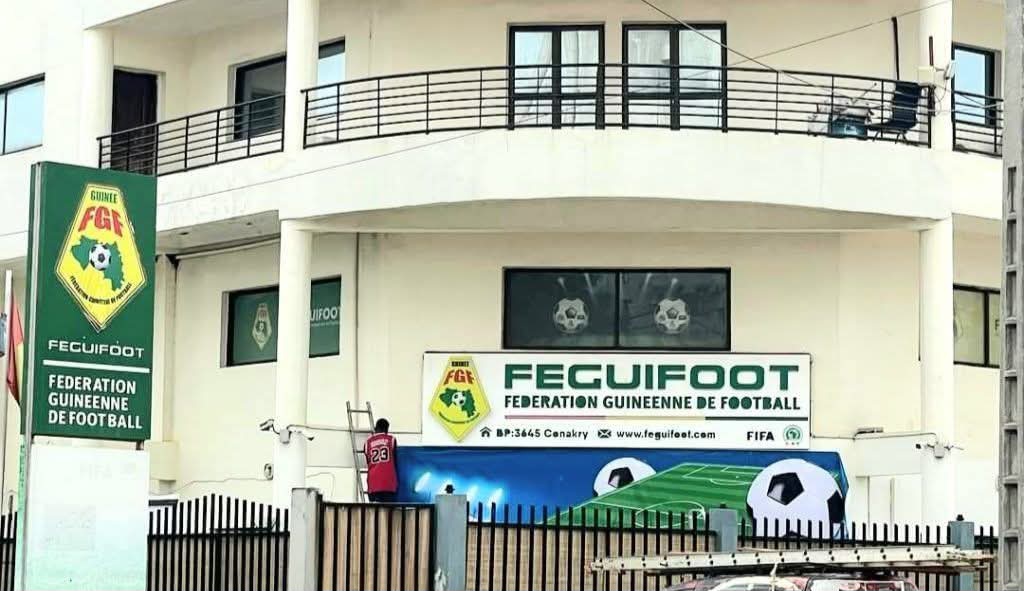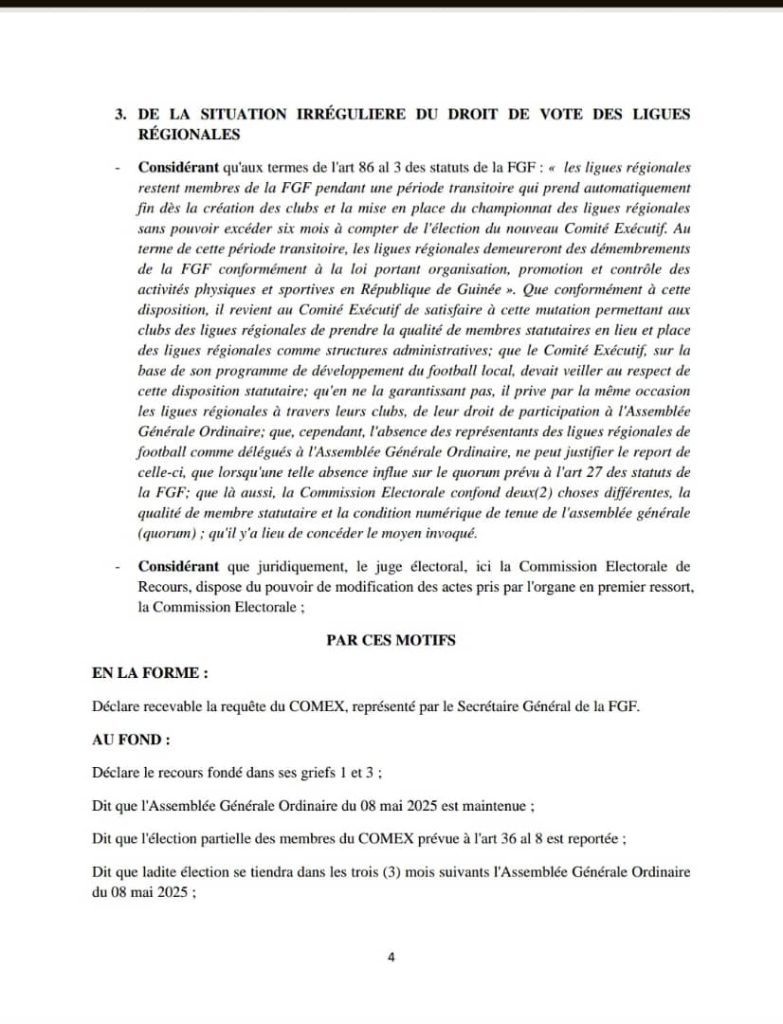Guinea’s Football appeals commission upholds May 8 congress with Caveats

The Appeals Commission of the Guinean Football Federation (Féguifoot) has ruled that the ordinary general assembly scheduled for May 8 can proceed as planned, but with key limitations concerning its electoral scope.
This decision comes after a recommendation by Féguifoot’s electoral commission to postpone the assembly due to what it described as “irregularities and shortcomings” in the preparations.
The electoral body’s concerns centered primarily on procedural issues surrounding the organization and notification process for the meeting.
However, the Executive Committee, through its Secretary General, referred the matter to the Appeals Commission, disputing the postponement and maintaining that the assembly remained in line with the Federation’s statutes.
In a carefully worded ruling, the Appeals Commission acknowledged that the upcoming assembly satisfies the requirements of Féguifoot’s governing framework.
It therefore rejected the call to suspend or cancel the event.
Nevertheless, it imposed a significant condition: the election of new members to the Executive Committee must be delayed by three months.
This means the May 8 assembly may proceed with its agenda, but without selecting new leadership for the federation.
The Commission’s nuanced position attempts to strike a balance between adhering to constitutional timelines and ensuring the credibility and transparency of the electoral process.
It also effectively stalls any immediate leadership transition, a move that may have implications for ongoing tensions within the federation.
The upcoming congress is particularly charged due to the recent dismissal of Féguifoot President Bouba Sampill, a decision that has divided stakeholders in Guinean football.
Critics argue that the May 8 session is being convened under questionable legality and say that any actions taken—especially the formal confirmation of Sampill’s removal—could lack legal authority if the meeting itself is ultimately ruled invalid.
Despite the Appeals Commission’s validation, skepticism remains among observers who believe that the procedural foundation of the assembly is still flawed.
They warn that any decisions taken, particularly those impacting leadership, could be challenged in future legal or regulatory reviews.
As the May 8 date approaches, attention will be focused on how Féguifoot navigates these internal disputes.
The outcome may shape not only the federation’s short-term governance but also its long-term credibility on both national and international stages.





